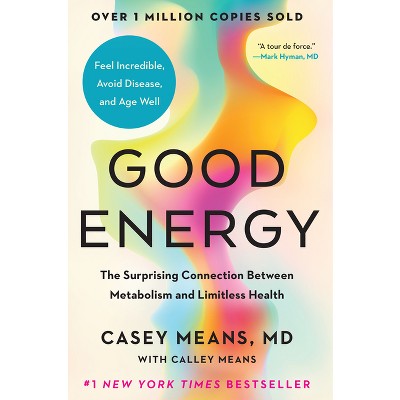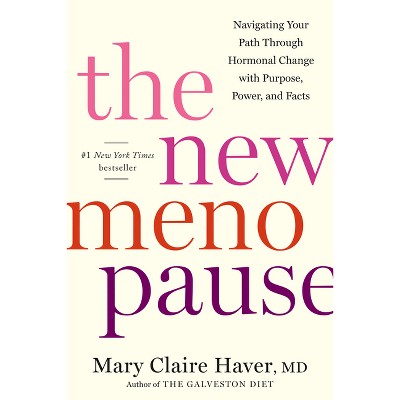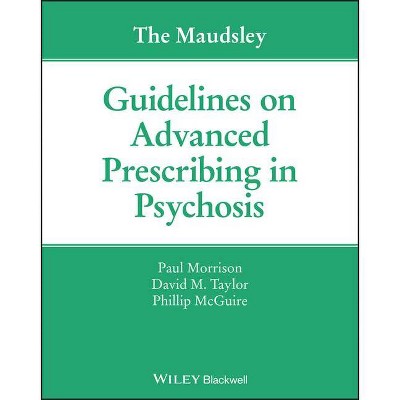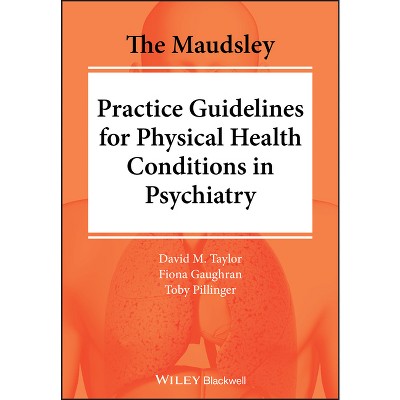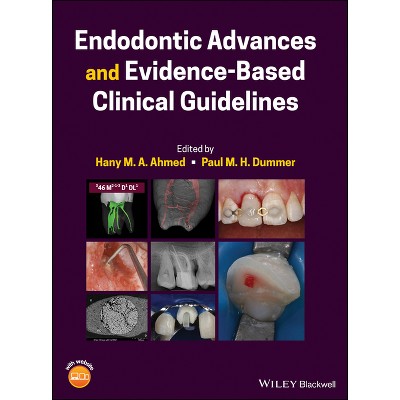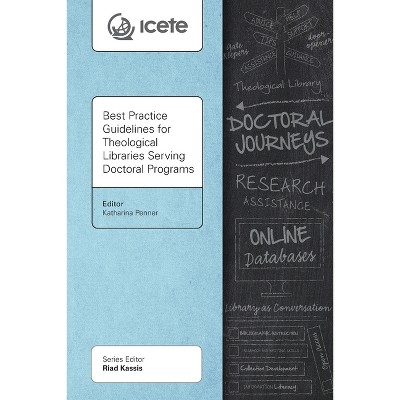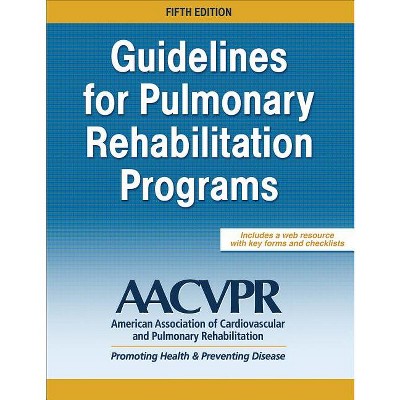The Maudsley Deprescribing Guidelines - (The Maudsley Prescribing Guidelines) by Mark Horowitz & David M Taylor (Paperback)

About this item
Highlights
- The Maudsley(R) Deprescribing Guidelines Comprehensive resource describing guidelines for safely reducing or stopping (deprescribing) antidepressants, benzodiazepines, gabapentinoids and z-drugs for patients, including step-by-step guidance for all commonly used medications, covering common pitfalls, troubleshooting, supportive strategies, and more.
- About the Author: Mark Horowitz, BA, BSc(Med), MBBS(Hons), MSc, GDipPsych, PhD, is a trainee psychiatrist and Clinical Research Fellow at North East London NHS Trust, where he runs a psychiatric drug deprescribing clinic.
- 592 Pages
- Medical, Psychiatry
- Series Name: The Maudsley Prescribing Guidelines
Description
About the Book
"The term 'deprescribing' originates from geriatric medicine where polypharmacy in frail patients can cause more harm than benefit.1 Deprescribing is increasingly recognised to be a key component of good prescribing - reducing doses when they are too high, and stopping medications when they are no longer needed.2 This process cannot occur in a vacuum of theoretical concerns but should take into account the patient's health, current level of functioning and, importantly, their values and preferences.1 Deprescribing seeks to apply best practice in prescribing to the process of stopping a medication. It requires the same skill and experience as for the process of prescribing from prescribers, as well as support from pharmacists and other healthcare staff to get the best results. Importantly, it should place patients at the centre of the process to ensure medicines optimisation"--Book Synopsis
The Maudsley(R) Deprescribing GuidelinesComprehensive resource describing guidelines for safely reducing or stopping (deprescribing) antidepressants, benzodiazepines, gabapentinoids and z-drugs for patients, including step-by-step guidance for all commonly used medications, covering common pitfalls, troubleshooting, supportive strategies, and more.
Most formal guidance on psychiatric medication relates to starting or switching medications with minimal guidance on deprescribing medication. In 2023, the World Health Organisation and the United Nations called for patients, as a human right, to be informed of their right to discontinue treatment and to receive support to do so.
The Maudsley Deprescribing Guidelines fills a significant gap in guidance for clinicians by providing comprehensive and authoritative information on this important aspect of treatment.
This evidence-based handbook provides an overview of principles to be used in deprescribing. This is derived from fundamental scientific principles and the latest research on this topic, combined with emerging insights from clinical practice (including from patient experts).
Building on the recognised brand of The Maudsley Prescribing Guidelines, and the prominence of the authors' work, including in The Lancet Psychiatry on tapering antidepressants (the most read article across all Lancet titles when it was released). The Maudsley Deprescribing Guidelines covers topics such as:
- Why and when to deprescribe antidepressants, benzodiazepines, gabapentinoids and z-drugs
- Barriers and enablers to deprescribing including physical dependence, social circumstances, and knowledge about the discontinuation process
- Distinguishing withdrawal symptoms, such as poor mood, anxiety, insomnia, and a variety of physical symptoms from symptoms of the underlying disorder that medication was intended to treat
- The difference between physical dependence and addiction/substance use disorder
- Explanation of why and how to implement hyperbolic tapering in clinical practice
- Specific guidance on formulations of medication and techniques for making gradual reductions, including using liquid forms of medication, and other approaches
- Step-by-step guidance for safely stopping all commonly used antidepressants, benzodiazepines, gabapentinoids and z-drugs, including fast, moderate and slow tapering regimens or schedules for each drug, and guidance on how to tailor these to an individual
- Troubleshooting issues which can arise on stopping these medications, including akathisia, withdrawal symptoms, acute or protracted, and relapse.
Written for anyone interested in safe deprescribing of psychiatric medications including psychiatrists, GPs, pharmacists, nurses, medical trainees, and interested members of the public. The Maudsley Deprescribing Guidelines is an essential resource on the subject that provides practical guidance on how to improve patient outcomes in this field of medicine.
From the Back Cover
Comprehensive resource describing guidelines for safely reducing or stopping (deprescribing) antidepressants, benzodiazepines, gabapentinoids and z-drugs for patients, including step-by-step guidance for all commonly used medications, covering common pitfalls, troubleshooting, supportive strategies, and more.
Most formal guidance on psychiatric medication relates to starting or switching medications with minimal guidance on deprescribing medication. In 2023, the World Health Organisation and the United Nations called for patients, as a human right, to be informed of their right to discontinue treatment and to receive support to do so.
The Maudsley Deprescribing Guidelines fills a significant gap in guidance for clinicians by providing comprehensive and authoritative information on this important aspect of treatment.
This evidence-based handbook provides an overview of principles to be used in deprescribing. This is derived from fundamental scientific principles and the latest research on this topic, combined with emerging insights from clinical practice (including from patient experts).
Building on the recognised brand of The Maudsley Prescribing Guidelines, and the prominence of the authors' work, including in The Lancet Psychiatry on tapering antidepressants (the most read article across all Lancet titles when it was released). The Maudsley Deprescribing Guidelines covers topics such as:
- Why and when to deprescribe antidepressants, benzodiazepines, gabapentinoids and z-drugs
- Barriers and enablers to deprescribing including physical dependence, social circumstances, and knowledge about the discontinuation process
- Distinguishing withdrawal symptoms, such as poor mood, anxiety, insomnia, and a variety of physical symptoms from symptoms of the underlying disorder that medication was intended to treat
- The difference between physical dependence and addiction/substance use disorder
- Explanation of why and how to implement hyperbolic tapering in clinical practice
- Specific guidance on formulations of medication and techniques for making gradual reductions, including using liquid forms of medication, and other approaches
- Step-by-step guidance for safely stopping all commonly used antidepressants, benzodiazepines, gabapentinoids and z-drugs, including fast, moderate and slow tapering regimens or schedules for each drug, and guidance on how to tailor these to an individual
- Troubleshooting issues which can arise on stopping these medications, including akathisia, withdrawal symptoms, acute or protracted, and relapse.
Written for anyone interested in safe deprescribing of psychiatric medications including psychiatrists, GPs, pharmacists, nurses, medical trainees, and interested members of the public. The Maudsley Deprescribing Guidelines is an essential resource on the subject that provides practical guidance on how to improve patient outcomes in this field of medicine.
About the Author
Mark Horowitz, BA, BSc(Med), MBBS(Hons), MSc, GDipPsych, PhD, is a trainee psychiatrist and Clinical Research Fellow at North East London NHS Trust, where he runs a psychiatric drug deprescribing clinic. He is an Honorary Research Fellow at University College London and he co-authored the Royal College of Psychiatrists guide on 'Stopping antidepressants'. He has authored multiple academic papers on how to safely stop psychiatric drugs in high impact journals, and lectured on this topic around the world to doctors, pharmacists and the public. He was commissioned by Health Education England to prepare a module on safe deprescribing of antidepressants for prescribers in the National Health Service (NHS). He has lived experience of stopping psychiatric drugs which informs most of his work.
David Taylor, PhD, FFRPS, FRPharmS, FRCPEdin, FRCPsych(Hon), is Director of Pharmacy and Pathology at the South London and Maudsley NHS Trust and Professor of Psychopharmacology at King's College, London. He is the lead author of the Maudsley Prescribing Guidelines in Psychiatry and Editor-in-Chief of Therapeutic Advances in Psychopharmacology. He co-authored the Royal College of Psychiatrists guide on 'Stopping antidepressants'. His pharmacy department ran a medication help-line for a decade which fielded queries largely related to withdrawal from psychiatric drugs. He has personal experience of stopping psychiatric drugs.


